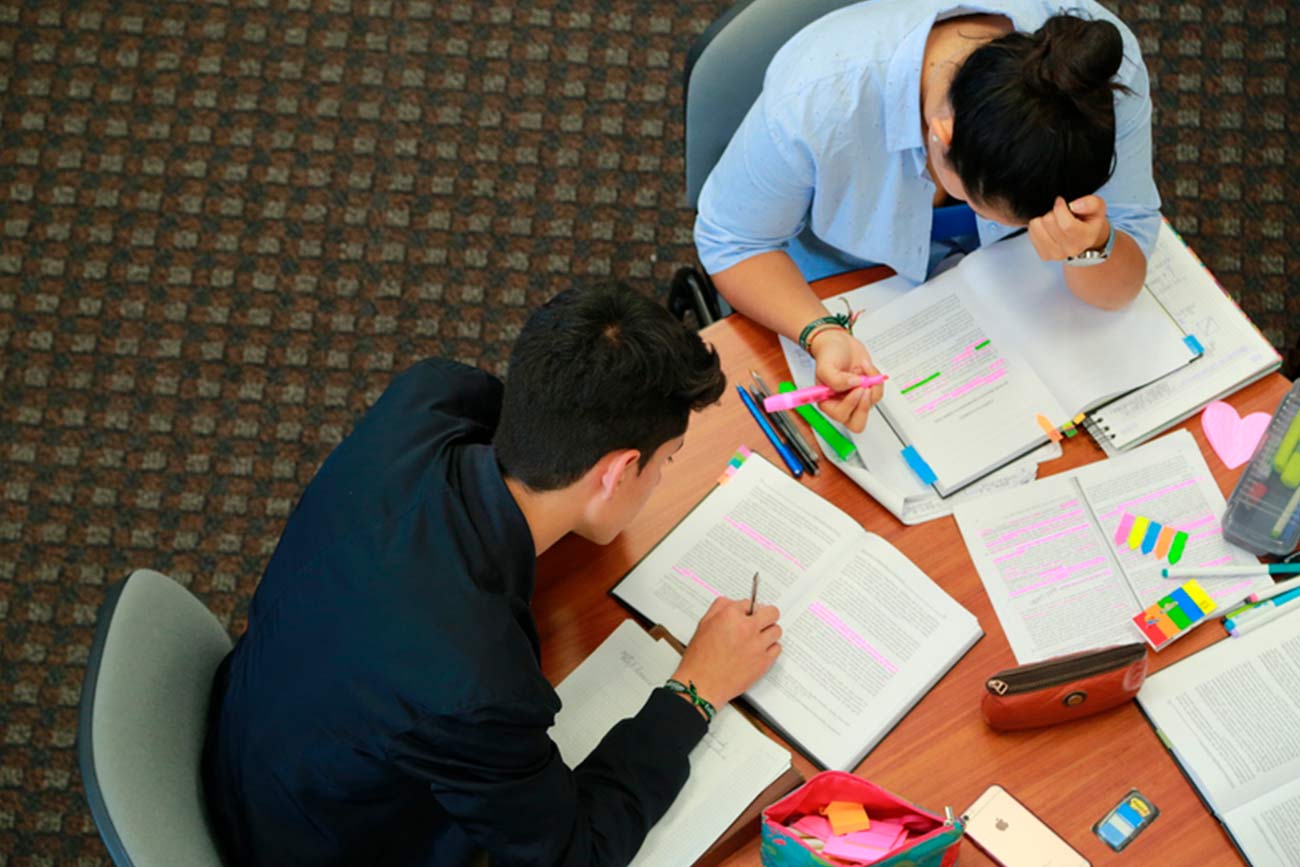
Research Groups – Semilleros
The macroeconomics and microeconomics research groups of the Faculty of Economics are a space for discussion of theoretical and applied topics in economics. Undergraduate and postgraduate students, researchers and teachers participate in the event, generating spaces for discussion around proposed topics each week, to debate over a two-hour period, working papers, suggested readings, and academic publications.
Objectives:
- Motivate students to actively participate in research topics to create positive inertia in the research structure of the Faculty.
- Strengthen the academic formation of undergraduate and graduate students by providing them with practical and theoretical tools for the analysis of topics seen in class.
- Train and reinforce students’ skills in the use of programs such as Phyton®, Matlab-Dynare®, Stata®, Argis®, Stata®, SPSS®, Bloomberg®, LaTeX®.
The Macroeconomics Research Group is a space in which students can delve into some topics related to theoretical, applied macroeconomics and macroeconometrics.
The topics currently proposed in the research group are:
- Determinants of private investment and its relationship to how wages are set. The objective is to analyse whether models with rational expectations can lead to cycles of unemployment and wages like those described by Marx and formalized by Goodwin.
- Wage-setting models that generally assume a Nash equilibrium between workers and employers. However, this equilibrium does not allow us to see clearly the role played by governments for the benefit of any class. The economic history of the 19th and 20th centuries has shown that in periods where real wages do not grow in proportion to labour productivity, there is pressure to increase employers’ earnings, but at the same time there is greater political instability over time. The question then is whether it is possible to formalize the role of governments with different political positions have on the growth and political stability of the country.
- Following recent work, we seek to identify the effects of trade liberalization on wages and income distribution. Competition theory says that trade between countries is fought by reducing costs. To be competitive on an international scale this requires, if possible, introducing technological improvements that increase labour productivity. If this increase is not possible, it requires reducing real wages in relation to labour productivity. If this is the case, the hypothesis is to see whether trade liberalization generally leads to a greater concentration of income and a loss in the workers’ share of value added.
- Following an argument like that of Hyman Minsky, it is proposed to investigate issues that can connect the investment decisions of companies, financing restrictions, the behavior of financial assets and debt levels. This environment can shed light on the type of constraints that monetary policy may have in its control over inflation and economic cycles.
The participation in the research group is open to students who have completed up to the fifth semester of undergraduate degree in Economics. Students can apply by sending an e-mail to juan.jacobo@uexternado.edu.co
The objective of the Development Measurement in Colombia workshop is to:
- Familiarize the student with the household surveys conducted by DANE such as: the Great Integrated Household Survey (GEIH), the National Quality of Life Survey (ENCV) and the National Survey on the Use of Time (ENUT).
- Present the different measures of development used in the country.
- Introduce the student to the Stata programming for the creation of these indicators.
- Introduce micro-simulation models of taxes and transfers as a tool for policy formulas to improve income distribution.
The dynamics of the workshop, which takes place in two-hour weekly sessions on Saturday, is developed as follows:
- Introduction to the topic of the session.
- Applied exercises to deepen data management and methodology.
- Discussion with those interested in advancing an investigation and its progress.
The research group is aimed at any undergraduate or graduate student of the Faculty. Those interested in joining the seedbed should fill out the following form.
Students can join by registering their data HERE
The Center for Strategic Analysis and Design is a space that seeks to promote communication and cooperation in different environments from an economic perspective, using elements of microeconomics and game theory. This semester, students conducted negotiation case studies with different topics.
It is aimed at students of any semester of the undergraduate program in Economics. Those interested can register freely by sending their information to the following email mabel.jimenez1@uexternado.edu.co
The research group in Tourism Economics is an initiative that seeks to promote research training for undergraduate and graduate students based on socioeconomic analysis of problems associated with tourism.
The activities of the research group contribute to the research line «Economy of Tourism» of the group State and Economy. This line of research seeks to contribute to the needs of the country and to the academic debate on the following topics:
- Demand for international and domestic tourism.
- The contribution of tourism to poverty and inequality reduction.
- Innovation in the tourism sector.
- The incidence of tourism in environmental variables.
- Tourism and its contribution to the SDGs.
The two projects in which the research group is currently located are:
- Data collection and analysis within the framework of the project Students preferences amongst Colombian destinations for short term mobility programs».
- Development of the first international tourism bulletin, including the construction of international tourist forecast models at the regional level and foreign exchange.
Students can join from the third semester of the undergraduate program in Economics, writing an email to giovanni.camacho@uexternado.edu.co

